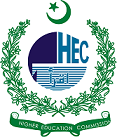Islamic Welfare System as a Preference to Support Economic Development: A Panacea to the Welfare Challenges in North East Nigeria
DOI:
https://doi.org/10.58932/MULE0026Keywords:
Islamic Welfare, Socio-Economic JusticeAbstract
The harmful fallacy in capitalist economy is the payment of usury “interest” that plays uncalled-for role in the system, which is based on exploitation, uncontrolled profit making, misappropriation of public funds, and increasing socio-economic inequality, which becomes the main feature of a democratic system of governance, the living conditions of the average citizen continuous to decline in North East Nigeria, this motivated the writing of this paper. Islamic welfare system encompasses human wellbeing, fostering of good life to all livings, nurturing a climate of love and affection. The article is geared to answer the question, how is the welfare system in Islam seen in the context of contemporary welfare challenges in North East of Nigeria? The article aims to examine the welfare system in Islam as seen in the context of contemporary welfare challenges. The paper is positional in nature. The Methodology used in developing this paper is based on consultation of literature related to the subject matter. The paper find that the living condition and welfare of the people is the prey, and the living conditions of the average citizen continue to decline. The paper recommendes that governments ought to set up principles of socio-economic justice in the distribution of income and wealth; for the welfare of Muslims` Community. It concludes that Muslims should always manifest and advocate the practice of donations and feedings, voluntary expenditure, as well as Al-Waqf endowment for the benefits of masses.
Islamic Welfare, Socio-Economic Justice
References
Abbasi, A. S. (2010). Welfare and Protection Model for Organizational Management: The Islamic Perspective. African Journal of Business Management, 740-743.
Akbar, A., Ahmad, S., Ali, M., Fayyaz, M. T., Ali, I., & Bhatti, M. A. A. (2024). Employee Development and Training: How HRM Helps in Staying Competitive in the Changing Market Condition. Al-Qanṭara.
Abegunde, O. (2014). Public Policy, Welfarism, and Social Service Delivery in Nigeria: The Case of a Receding State. Journal of Law, Policy and Globalization (22).
Afzal-ur-Rahman, M. (n.d.). Economic doctrines of Islam, 61-100.
Ahmad. (n.d.). No. 18044. 229.
Al-Bukhari. (1987). Sahih Al- Bukhari, Dar ibn Kathir.
Al-Mollah, H. (2008). The Governmental System of the Prophet Muhammad (Peace and blessings of Allah (S.W.T.) be upon him) A Comparative Study in the Constitutional Law. Dar Al-Kotob Al-Ilmiyah, Lebanon, 21.
Al-Mubarakpuri, S. S. (2003). Tafsir Ibn Kathir the Abridged. Dar-us-Salam King Fahd National library, Riyadh, 88.
Chapra, M. U. (n.d.). The Islamic Welfare State and its Role in the Economy. 14.
Chaudhary, M. S. (n.d.). Islamic economic system, 46.
Christopher, E. P. (1983). Social Welfare and Family Support: The Nigerian Experience. Journal of Sociology & Social Welfare, Vol. 10 (11), 491.
Commission, N. P. (2016). Population and housing census 2006. Nigeria: Federal Republic of Nigeria and National Bureau of statistics. “Nigeria Poverty profile.
Effoduh, J. O. (2015). The Economic Development of Nigeria from 1914 to 2014. Council on African Security and Development, (p. 2). Nigeria.
Erdem. (n.d.). The Functions of State, 29.
Haider, S. N. (1981). Naqur`anvi, Individual Freedom, Social Welfare and Islamic Economic Order. Pakistan Institute of Development Economics.
Hamid, E. A. (2004). The Qur’an and Politics: A Study of the Origins of Political Thought in the Makkan Qur`an. International Institute of Islamic Thought. London UK, 45-47.
Hasanuz-zaman, S. (1991). Economic Functions of an Islamic State (The Early Experience). The Islamic Foundation, United Kingdom, 21.
Hasanuzzaman, S. (1991). Economic Functions of an Islamic State, the early experience. UK, Islamic foundation, 55.
Hasanuzzaman, S. (1991). Economic Functions of an Islamic State, the early experience. Islamic Foundation. UK, 56.
Hasanuzzaman, S. (n.d.). Economic Functions of an Islamic State, the early experience. 138.
Hassan, I. A. (2013). Ethical Principles of Islamic Financial Institutions. Journal of Economic Cooperation and Development, (34) 1, 75-76.
Jomo, K. S. (1992). Islamic economic alternatives. London. Macmillan Academic Ltd., 52-55.
Nyako, A. M. (2015). North East Development Commission: An Institutional Framework for a Sustainable Solution to the North-East National Security challenge. Senator-Elect Adamawa Central Adamawa State, 3.
Provision, S. C. (1967). Decree no. 14.
Quran. (n.d.).
Quran(103:2-3). (n.d.). Surah Al-Asr.
Quran(16:14). (n.d.). Surah Al-Nahl.
Quran(16:71). (n.d.). Surah Al-Nahl.
Quran(17:26-27). (n.d.). Surah Al-Isra.
Quran(2:177). (n.d.). Surah Al-Baqarah.
Quran(2:205). (n.d.). Surah Al-Baqarah.
Quran(2:22). (n.d.). Surah Al-Baqarah.
Quran(20:118-119). (n.d.). Surah Ta-Ha.
Quran(28:77). (n.d.). Surah Al-Qasas.
Quran(45:13). (n.d.). Surah Al-Jathiyah. Mecca.
Quran(59:6-9). (n.d.). Surah Al-Hashr.
Quran(7:10). (n.d.). Surah Al-Araf.
Quran(81:8-9). (n.d.). Surah At-Takwir.
Quran(90:11-16). (n.d.). Surah Al-Balad.
Quran(90:12-13). (n.d.). Surah Al-Balad.
Quran(92:5-11). (n.d.). Surah Al-Layl.
Tormidhi. (n.d.). Hno 2341. 571.
Ahmad, D. S. ., Ahmad, D. A. ., Shair, W. ., & Bhatti, M. A. A. (2022). Unlocking Pakistan’s Youth Potential: A Comprehensive Analysis of Youth Development Indices and Strategic Alignment with the UN Sustainable Development Goals. Journal of Professional Research in Social Sciences, 9(2), 80–95.
UNDP. (2018). Achieving Human Development in North East Nigeria. Nigeria: Abuja FCT: Report prepared for the United Nations Development Programme. Plot 617/618 Diplomatic Drive, Central Area District, Diplomatic Zone, Garki.
Abbasi, A. S. (2010), “Welfare and protection model for organizational management: The Islamic perspective,” African Journal of Business Management Vol. 4(5), pp. 739-747, ISSN 1993-8233 Academic Journals, May
Abegunde, O. (2014), “Public Policy, Welfarism, and Social Service Delivery in Nigeria: The Case of a Receding State”Journal of Law, Policy and Globalization www.iiste.org ISSN 2224-3240 (Paper) ISSN 2224-3259 (Online) Vol.22
Adebayo, I. and Hassan, M. K. (2013), “Ethical Principles of Islamic Financial Institutions” Journal of Economic Cooperation and Development, 34, 1
Al-Bukhari, (1987), Sahih Al- Bukhari, Dar ibn Kathir,Hno: 6732
Al-Mollah, H.Y. (2008), The Governmental System of the Prophet Muhammad (Peace and blessings of Allah (S.W.T.) be upon him) A Comparative Study in the Constitutional Law.Dar Al-Kotob Al-Ilmiyah, Lebanon.p.21
Al-Mubarakpuri, S. S. (ed.), (2003), Tafsir Ibn Kathir the Abridged, Riyadh, Dar-us-Salam King Fahd National library. Volume 10
Christopher, E. P. (1983), "Social Welfare and Family Support: The Nigerian Experience, "In the Journal of Sociology & Social Welfare: Vol. 10, ISSN. 3, Article 11
Effoduh, J. O. (2015), “The Economic Development of Nigeria from 1914 to 2014,” The paper presented at the Council on African Security and Development [CASADE]. Jan 20
Hamid, E. A. (2004), The Qur’an and Politics: A Study of the Origins of Political Thought in the Makkan Qur`an. International Institute of Islamic Thought. London UK
Zaman, A. (2008), “Islamic Economics: A survey of the literature” Islamabad, International Institute of Islamic Economics, International Islamic University, Pakistan Working paper 22.











